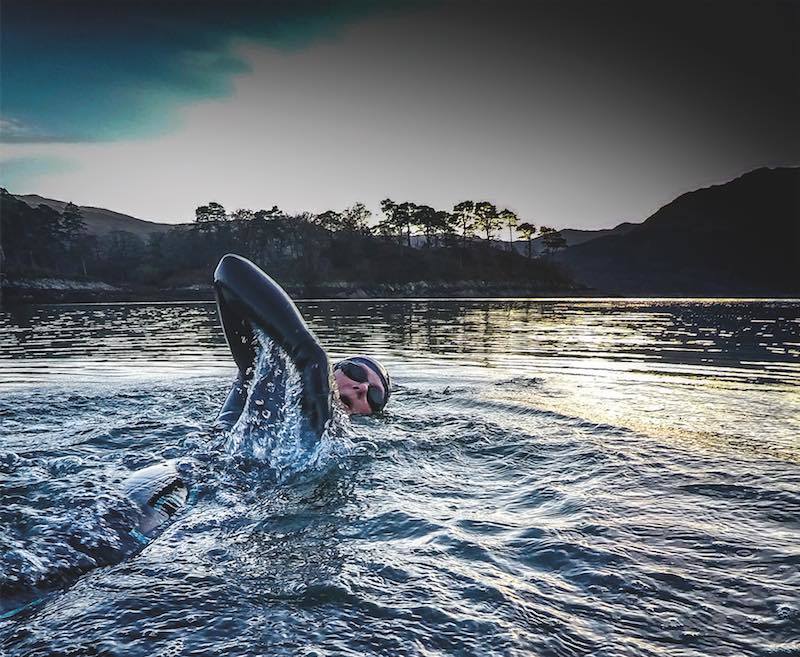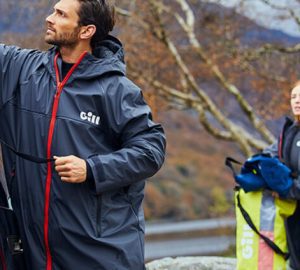
8 things to consider before swimming in cold water
Co-founders of SwimQuest Swimming Holidays, John Coningham-Rolls and Alice Todd share some important tips for what to consider before a cold water swim.
With many people rediscovering the joys of open water swimming this summer, as we move into winter more and more swimmers are choosing to snub the warmth of indoor pools in favour of a brisk dip outdoors.
The reasons for winter dipping are countless: the famous ‘feel-good factor’, the adrenaline rush, the boost is can give to your immune system – the list goes on. But with these benefits also come some important safety considerations.
Whether you are new to winter swimming this year, or a seasoned winter dipper, here are some important safety considerations you should think about each time you plan to get in cold water.
1. Is it safe? It is important to establish this each time you arrive at your chosen swim spot. Assess the prevailing weather conditions both in and out of the water to ensure you don’t put yourself and others in danger. Is it very windy? Is it raining heavily? If you are on the coast, is there a strong tide? If you are river swimming, how fast is the current? It’s important to consider whether any of these factors will compromise your safety both in the water and when you warm up after.
2. How will my body react? – Each day is different when it comes to winter swimming; there are many factors that can influence how long you can stay in the water. For example, food intake, a lack of sleep, the amount of alcohol you drink the night before, and your general sense of wellbeing can all play a part in how your body reacts to the cold. Take each day individually and know when it’s time to get out.
3. Temperature – It’s also good to have a rough idea of what the water temperature is before you swim so you know what to expect when you get in the water. Supervised venues will provide this information for their swimmers. If swimming in a river, unsupervised lake or the sea, either read up on the average water temperatures for that time of year or use a water thermometer. See our Guide to Water Temperatures for a breakdown of what to expect at different times of the year.
4. Knowing your entry and exit points will make for a safer swim. Before you enter the water, ensure you’ve planned where you’ll get out and make sure it’s a suitable exit point. When assessing your exit point, also consider your ability to get out the water when your body is cold and your hands and feet don’t respond as they would do when you are warm.
5. Never swim alone – It is advisable that if you are swimming at an unsupervised location to have someone else there to swim with you or watch you when you’re in the water. If you get into trouble it can be very dangerous if you don’t have someone there to support you.
If you don’t have anyone to swim with or just prefer swimming at a supervised and lifeguarded open water venue, visit our winter venues directory for an up-to-date lists of venues that are open this winter.
6. Water quality – It is often a good idea to check the quality of the spot you plan to visit online before you swim. If swimming in a river, it is advisable not to swim within 24 hours of heavy rainfall if you plan to dip downstream of a sewage overflow point. If you are swimming in the sea, check out the Surfers Against Sewage live water quality map.
7. Kit – When it comes to cold water swimming, the devil is in the detail. Having the right kit and accessories for you will make your swim more enjoyable. Whether that is a wetsuit, neoprene gloves and booties or just a swimming costume and a smile, the important thing is that your kit works for you – both in and out of the water. Here are some suggestions.
8. Keep warm before getting in – The human body starts to cool from the moment it is exposed to the cold. For swimmers, this is the point where you start removing the warm, dry clothes you are already wearing. It is therefore advisable to keep on your warm clothes/ dryrobe for as long as you can before swimming. The quicker you get in the water from when you undress, the better!
Keen to book a winter swimming safety session for your swim group or lake? Get in touch with John or Alice from SwimQuest Swimming Holidays by emailing info@swimquest.uk.com or call 07825 301433.








